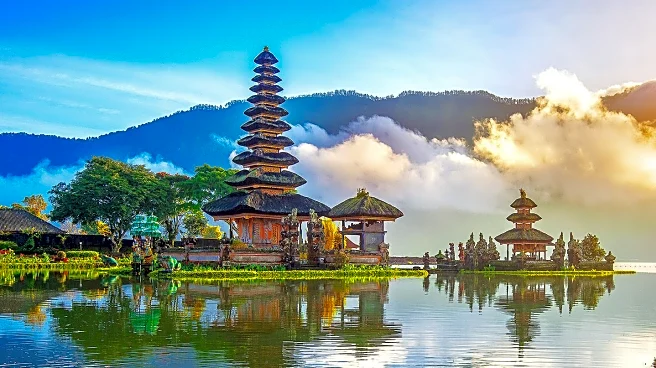What's Happening?
Bali is an Indonesian island located in the Lesser Sunda Islands, with a total area of approximately 5,780 square kilometers. The island features a diverse landscape dominated by mountains, including the active volcano Mount Agung. Bali has a tropical
climate with distinct dry and wet seasons. The population is approximately 4.35 million, with a majority adhering to Hinduism. Tourism is the primary economic driver, accounting for 80% of the island's economy, alongside agriculture and handicrafts.
Why It's Important?
Bali's geographical features and climate make it a prime location for tourism, which is crucial for the island's economy. The tourism industry supports local businesses and provides employment opportunities, contributing to the overall economic stability of the region. Bali's unique cultural and religious identity attracts international visitors, enhancing Indonesia's cultural diplomacy and global presence. The island's reliance on tourism underscores the need for sustainable practices to preserve its natural and cultural resources.
What's Next?
Efforts to promote sustainable tourism and environmental conservation are essential for Bali's future. The local government may implement policies to address water shortages and pollution caused by over-tourism. Infrastructure improvements and community engagement in conservation efforts could enhance Bali's appeal as a sustainable tourist destination. Additionally, Bali's cultural and economic significance may lead to increased international collaborations and events hosted on the island.
Beyond the Headlines
Bali's cultural practices, such as traditional dance and religious ceremonies, are integral to its identity and appeal. The island's ability to maintain its cultural heritage while adapting to modern economic demands highlights its resilience and innovation. Bali's unique position within Indonesia as a Hindu-majority province offers insights into the country's religious and cultural diversity.
















